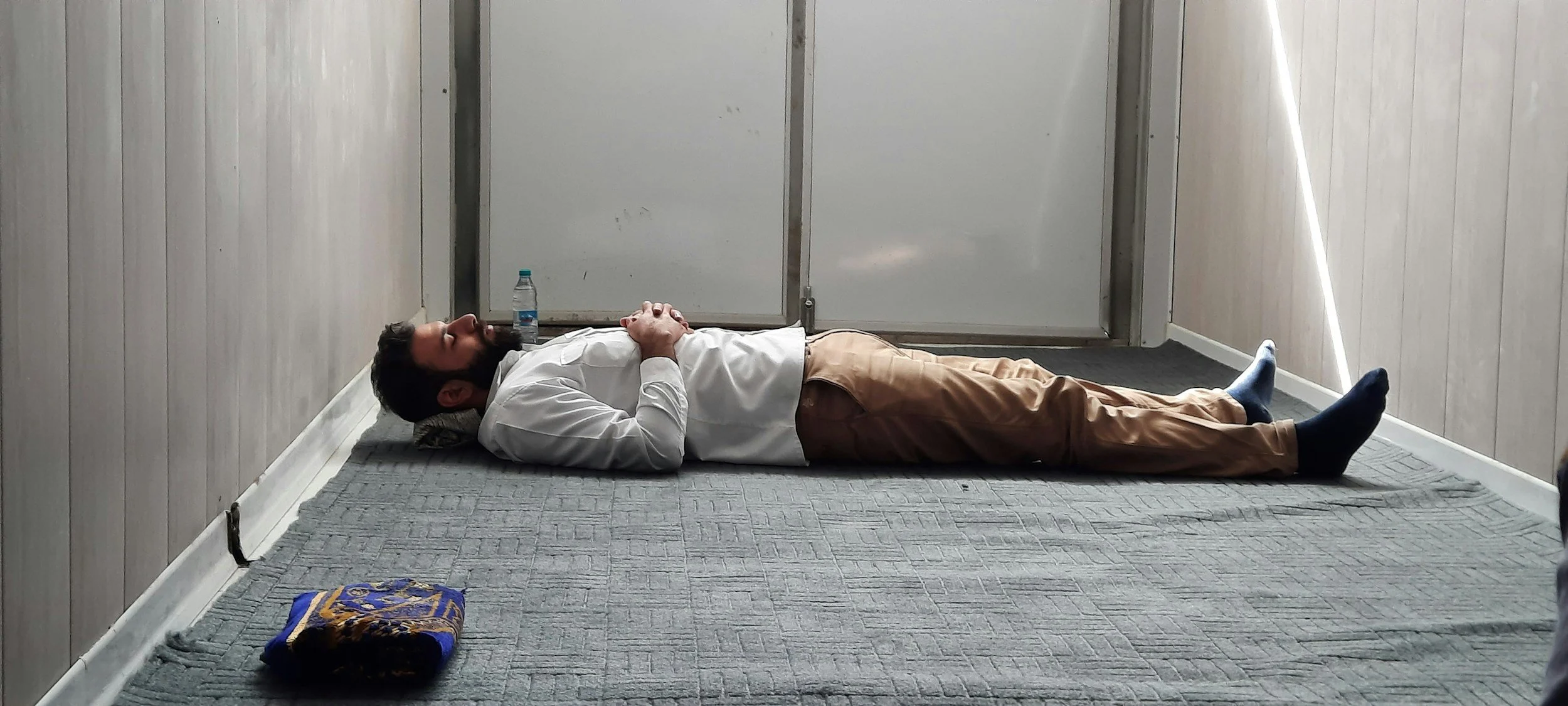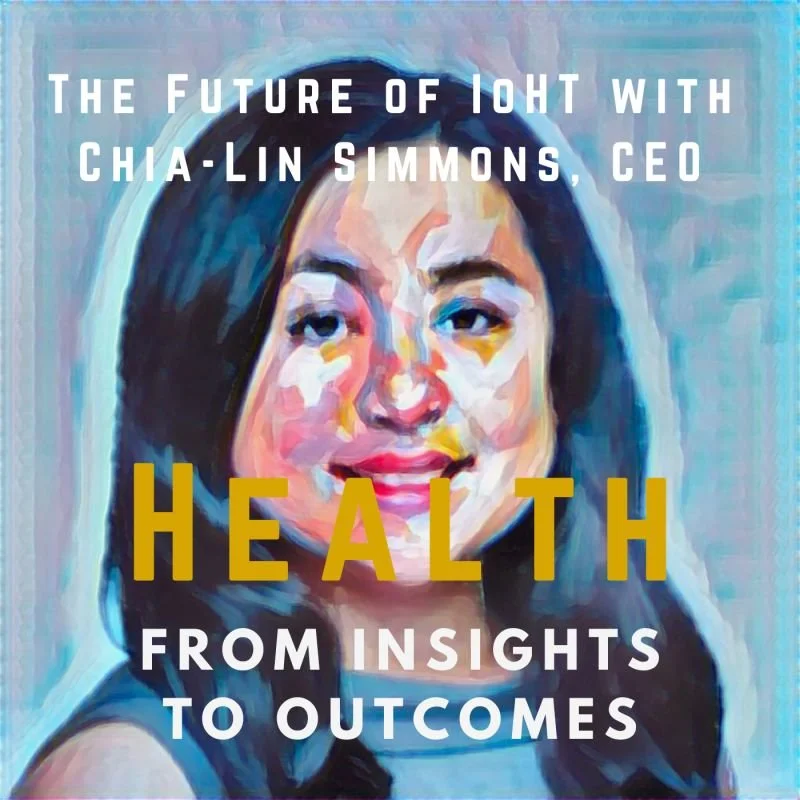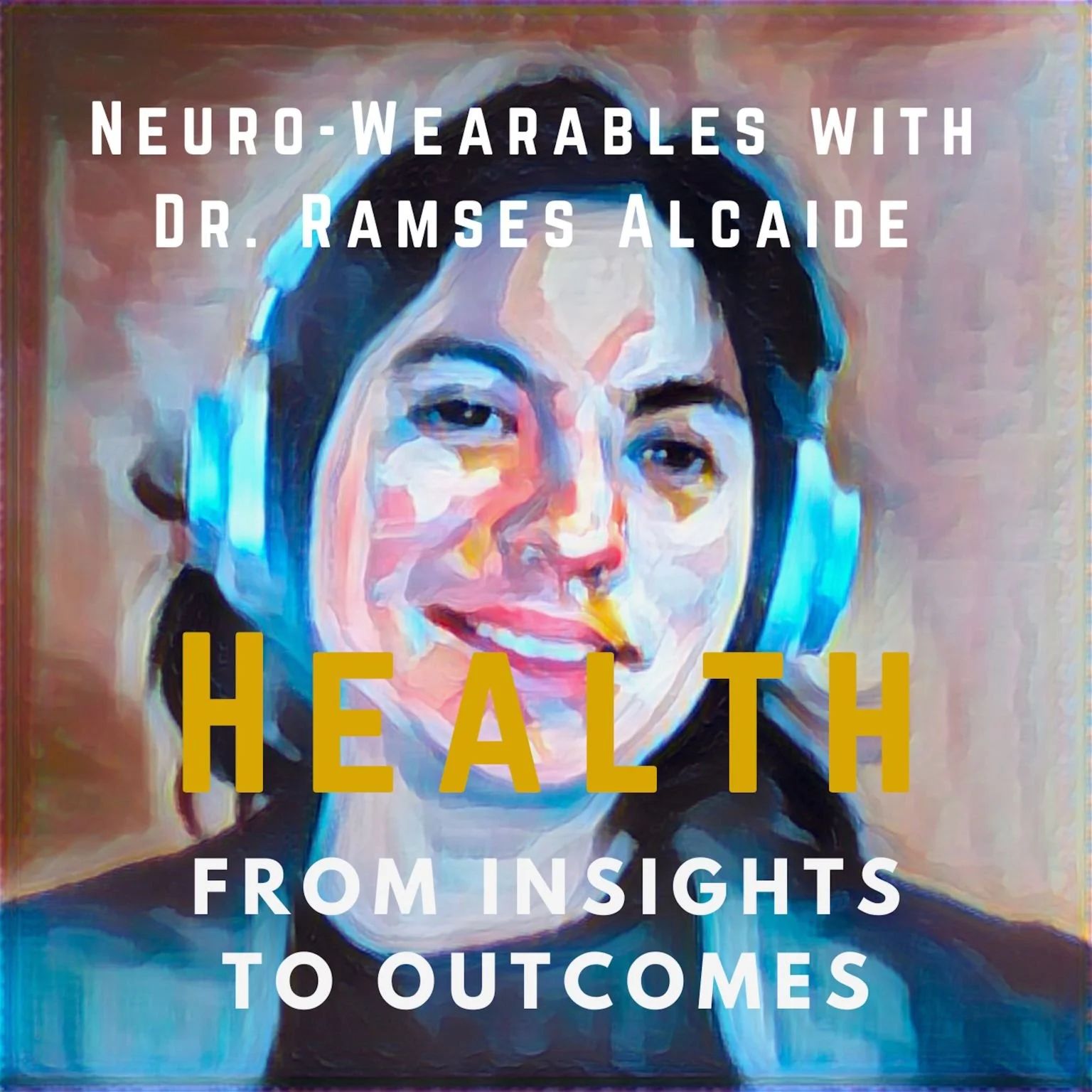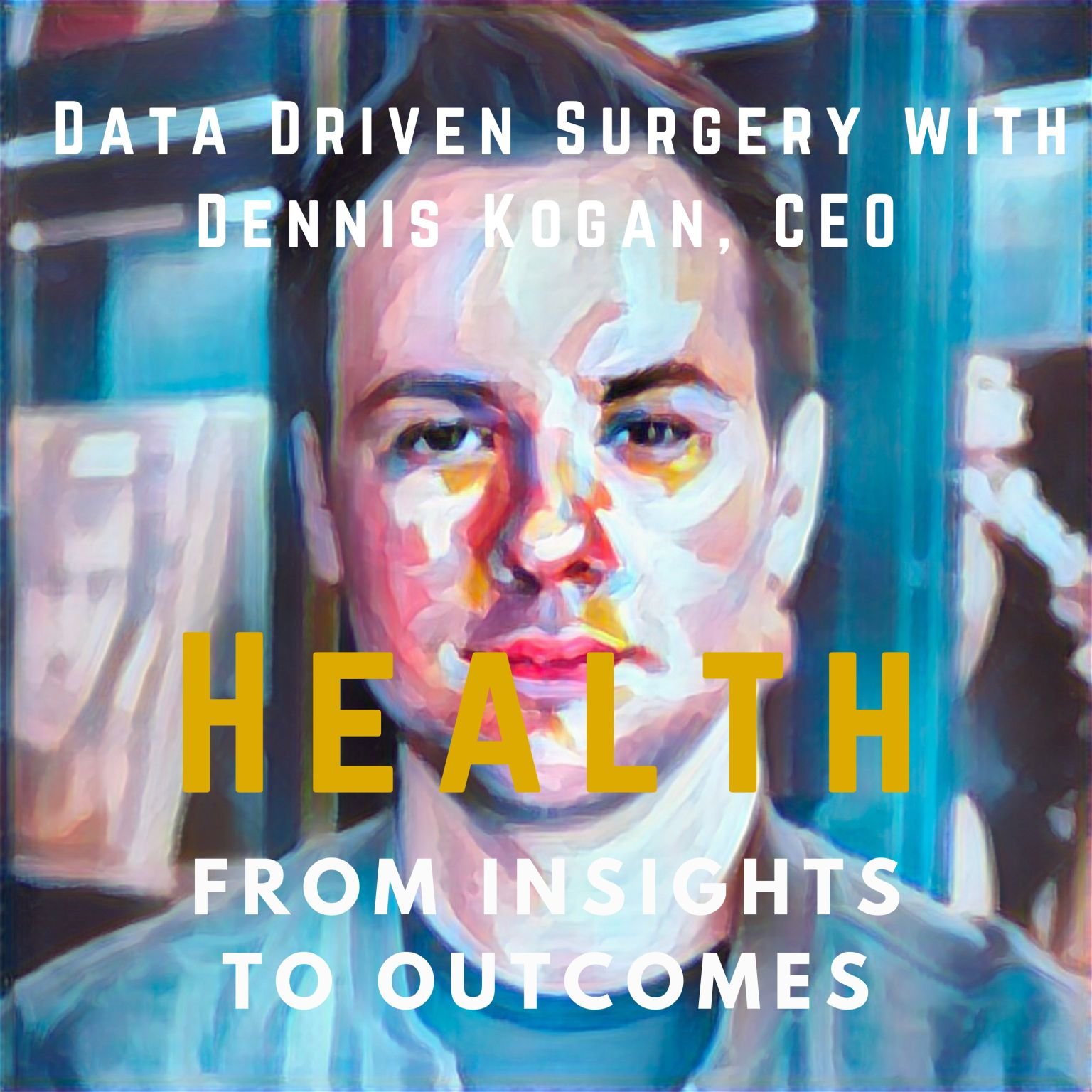Focus on Physicians:
Insights, Ideas, and Strategies
My Podcast Interview with Digital Diagnostic’s John Bertrand
Artificial intelligence is making its way into healthcare at a rapid pace. By harnessing its benefits while at the same time recognizing its limitations, we have an opportunity to improve and expand access to care for a wide range of people.
This was a thought-provoking podcast conversation with John Bertrand of Digital Diagnostics about the practical and potentially life-changing uses of AI for early detection of diabetic retinopathy. The beauty of the process is the fact that it can be used virtually anywhere, and does not require a highly skilled technician to acquire the data.
Artificial intelligence is making its way into healthcare at a rapid pace. By harnessing its benefits while at the same time recognizing its limitations, we have an opportunity to improve and expand access to care for a wide range of people.
This was a thought-provoking podcast conversation with John Bertrand of Digital Diagnostics about the practical and potentially life-changing uses of AI for early detection of diabetic retinopathy. The beauty of the process is the fact that it can be used virtually anywhere, and does not require a highly skilled technician to acquire the data.
My Podcast Interview with AI Pioneer Dennis Cogan of Caresyntax
As a TechLink Insights podcast host, I enjoyed this very forward-thinking and inspiring conversation with Dennis Kogan of Caresyntax about the role of AI in surgical practice.
The future looks bright for innovations in care when AI is applied thoughtfully and collaboratively.
It’s no secret that artificial intelligence (AI) is rapidly becoming a powerful tool in healthcare and medical science.
As a TechLink Insights podcast host, I enjoyed this very forward-thinking and inspiring conversation with Dennis Kogan of Caresyntax, a company pioneering the use of AI in surgical practice.
It’s normal to feel uneasy about these new technologies. But AI is already here, and it’s up to physicians and others in healthcare to guide its implementation and develop reasonable safety rails to protect our patients. Having met with a number of pioneers in this space through the podcast, I believe that the future looks bright for innovations in care when AI is applied thoughtfully and collaboratively.
My Podcast Interview with Tax Expert Alexis Gallati, MBA
I really enjoyed my conversation with tax expert Alexis Gallati, EA, MBA, MS Tax, CTS for TechLink Health. This was such a practical and well explained deep dive into tax strategies for physicians.
I really enjoyed my conversation with Alexis Gallati, EA, MBA, MS Tax, CTS for TechLink Health. This was such a practical and well explained deep dive into tax strategies for physicians.
Alexis is married to a surgeon, so she has seen firsthand how little education most of us have in financial strategies, and how this lack of knowledge can hurt us and leave us vulnerable to bad advice.
This podcast addressed financial strategies related to side gigs, managing independent practices and more. Alexis is an engaging speaker and shares a wealth of practical insight.
My Podcast Interview with Health Tech Expert Shanil Ebrahim
Shanil Ebrahim is on the cutting edge of healthcare technology, with expertise not only as a scientist but also with meaningful experience in the fields of AI and health equity. His insights are timely and thought provoking.
Shanil Ebrahim is on the cutting edge of healthcare technology, with expertise not only as a scientist but also with meaningful experience in the fields of AI and health equity. His insights are timely and thought provoking.
As a frequent host of the TechLink Health podcast, it's always such a pleasure and a privilege to meet with leading innovators in the health and tech space. The industry is moving at warp speed, and it's great to have a front row seat!
You can listen to the podcast at TechLink Health as well as Spotify and Apple Podcasts.
My Podcast Appearance with Kevin MD on Meditation and Mindfulness
In my recent conversation with Kevin Pho, M.D we discussed how mindfulness can have far-reaching effects not only for physicians, but for those you we care for. We also discussed the best times for meditation, when you might want to avoid it, and how a brief meditation can impact your sense of well-being.
As a physician coach, I love sharing this story, because it encapsulates how such a simple and brief practice can have a meaningful impact.
Despite often heavy-handed corporate efforts to the contrary, mindfulness is not a bandaid to fix all that is wrong with healthcare. And it’s not a substitute for the meaningful change that is so desperately needed. Instead, it’s a reminder to be present and engage with what is happening right now, without judgement or reactivity.
I enjoyed my recent conversation with Kevin Pho, M.D. We discussed how mindfulness can have far-reaching effects not only for yourself, but for those you care for. We also discussed the best times for meditation, when you might want to avoid it, and how a brief meditation can impact your sense of well-being.
As a physician coach, I love sharing this story, because it encapsulates how such a simple and brief practice can have a meaningful impact.
Despite often heavy-handed corporate efforts to the contrary, mindfulness is not a bandaid to fix all that is wrong with healthcare. And it’s not a substitute for the meaningful change that is so desperately needed. Instead, it’s a reminder to be present and engage with what is happening right now, without judgement or reactivity.
Through mindfulness, you are can find a way to take a moment in the middle of the daily storm to re-center and reset. And for physicians, that can go a long way towards building stronger relationships with patients and staff based on trust and respect.
My Podcast Interview with Grenville Thynne of Neuroflex
I recently had a fascinating conversation with Grenville Thynne for the Techlink Health Podcast. We discussed his work with the trailblazing Neuroflex company. Neuroflex’s portable technology can quickly detect evidence of concussion on site, which makes it especially valuable to athletes of all types. The technology is also being studied in aging, and has the ability to provide objective measurements of brain function that can be tracked over time.
I recently had a fascinating conversation with Grenville Thynne for the Techlink Health Podcast. We discussed his work with the trailblazing Neuroflex company. Neuroflex’s portable technology can quickly detect evidence of concussion on site, which makes it especially valuable to athletes of all types.
The technology is also being studied in aging and neurodevelopmental disorders, and has the ability to provide objective measurements of brain function that can be tracked over time.
This was one of my favorite podcasts of the year. I hope you enjoy it.
My Podcast Interview with Phage Therapy Research Scientist Dr. Jennifer Sacher
It was such a pleasure to interview Dr. Jessica Sacher for the Techlink Health Podcast. We discussed her fascinating work using phage therapy to defeat superbugs, and how she got started in the field. We also had a great conversation about the personal aspects of this work, and how she has adapted her laboratory process to meet the growing need for phage therapy.
It was such a pleasure to interview Dr. Jessica Sacher for the Techlink Health Podcast.
We discussed her fascinating work using phage therapy to defeat superbugs, and how she got started in the field.
We also had a great conversation about the personal aspects of this work, and how she has adapted her laboratory process to meet the growing need for phage therapy.
This interview is a great reminder of all the people whose work contributes to saving lives and furthering the progress of medical science.
Jessica’s passion for her work shines through in this interview. I hope you enjoy it!
My Podcast Interview with Dr. Keith Matheny, Medical Entrepreneur
It was a real treat to have the opportunity to interview Keith Matheny for the TechLink Health podcast. As a colleague and fellow Vanderbilt alumni, I was especially interested to hear his story and discover how he designed an innovative and physician-driven approach to challenges in the Ear Nose and Throat specialty.
It was a real treat to have the opportunity to interview Dr. Keith Matheny for the TechLink Health podcast. As a colleague and fellow Vanderbilt alumni, I was especially interested to hear his story and discover how he designed an innovative and physician-driven approach to challenges in the Ear Nose and Throat specialty.
Keith is a fantastic clinician and an inspiring entrepreneur, and I think you’ll enjoy our conversation.
Check out the podcast here, or you can listen on Apple Podcast, Spotify, or on the TechLink Health website or app.
Navigating Burnout: My Podcast Appearance on KevinMD
Burnout is a symptom of a system that is not working for you. In many ways it’s a form of grief. It’s not your fault. But that doesn’t mean there’s no way out. In my interview with Kevin MD, I discussed the factors that contribute to burnout as well as some actionable steps you can take to improve your life as a physician and to combat the effects of today’s stressful environment.
If you’re a physician, or anyone active in healthcare today, you have probably heard of Dr. Kevin Pho and his KevinMD podcast and website.
Kevin posts interviews and articles daily, and I was thrilled to be a recent guest. In the episode, we discussed the burnout epidemic, and why it’s not the same as compassion fatigue.
Burnout is a symptom of a system that is not working for you. In many ways, it’s a form of grief. It’s not your fault. But that doesn’t mean there’s no way out. In the interview, I went over actionable steps you can take to improve your life as a physician and to combat the effects of today’s stressful environment.
My Podcast Interview With Dr. Cliff Han of AllerPops
I recently had the opportunity to interview Dr. Cliff Shunsheng Han for the Techlink Health podcast. Dr. Han is a physician, a medical researcher with the Human Genome Project, and the creator of AllerPops, an innovative product designed to help fight the seasonal allergies that plague so many of us.
Dr. Han is a wonderful example of a physician who followed a nontraditional pathway. In the podcast he shares his story and what led him to research and create the AllerPops products.
I recently had the opportunity to interview Dr. Cliff Shunsheng Han for the Techlink Health podcast. Dr. Han is a physician, a medical researcher with the Human Genome Project, and the creator of AllerPops, an innovative product designed to help fight the seasonal allergies that plague so many of us.
An allergy sufferer himself, when medications failed to get his problem under control, Dr. Han decided to look beyond the traditional factors that contribute to allergies. he was also motivated by the allergies suffered by his young son. That led him to explore the idea of prebiotics and the importance of a healthy oral microbiome.
Dr. Han is a wonderful example of a physician who followed a nontraditional pathway. Although he trained and practiced as a doctor in China, he has worked as a research scientist since coming to the US over 20 years ago. He shares more about his story on the podcast and in his book, Nothing to Sneeze At.
But once a physician, always a physician. Through his curiosity and resilience, Dr. Han has created something completely new with AllerPops. The science is still in the early stages, but the testimonials on his website are inspiring.
As a disclosure, I will note that Dr. Han has kindly offered to supply me with a sample kit of Allerpops. As a nearly year-round allergy sufferer, I am really looking forward to giving them a try.
If you’ve enjoyed this article and would like to stay in the loop for more insights on creating a sustainable, fulfilling, and happy life as a physician, sign up for my newsletter or reach out on my website. I’d love to hear from you.
This post contains Amazon affiliate links. I may earn a small commission when you click on the links, at no additional cost to you. These commissions help to support the website.
As a physician coach, I can work with you to explore what’s possible and create a plan that aligns with your personal values and aspirations. Schedule your exploratory conversation with me by clicking the button below.
My Podcast Interview with Dr. Vicki Rackner: Surgeon, Entrepreneur, and Financial Coach
I thoroughly enjoyed meeting Vicki Rackner MD on the TechLink Health podcast and learning about her work in the field of physician financial well-being. It was a fascinating conversation, and her story is inspiring! Take a listen on Spotify or wherever you listen to podcasts.
I thoroughly enjoyed meeting Vicki Rackner MD on the TechLink Health podcast and learning about her work in the field of physician financial well-being.
It was a fascinating conversation, and her story is inspiring! Through personal adversity and challenge, Dr. Rackner created a business helping physicians discover financial freedom.
While she is not a financial advisor, Dr. Rackner works with physicians to help them leverage their medical expertise, generate multiple income streams, and develop critical business and marketing skills. She has authored three books on the subject, with another one on the way.
Take a listen on Spotify or wherever you listen to podcasts.
Combating Neurophobia: My Podcast Interview with Dr. Michael Kentris
I recently co-hosted an episode of the TechLink Health podcast featuring neurologist Michael Kentris, D.O.
As a podcaster himself, Dr. Kentris combats "neurophobia" by breaking down complicated topics in neurology for clinicians across a broad range of specialties.
I recently co-hosted an episode of the TechLink Health podcast featuring neurologist Michael Kentris, D.O.
In a wide-ranging discussion, my co-host David Sanchez, RN and I learned about Dr. Kentris' cutting edge work as a neurologist and as a physician educator. As a podcaster himself, Dr. Kentris combats "neurophobia" by breaking down complicated topics in neurology for clinicians across a broad range of specialties. Look for his entertaining and enlightening podcast "The Neurotransmitters" on Apple or Spotify.
I was also excited to learn that Dr. Kentris and I both studied at Vanderbilt University School of Medicine. I graduated from medical school at VUSM in 1988, and he complete his clinical neurophysiology fellowship there in 2018.
Defeating Superbugs: My Podcast Interview with Dr. Steffanie Strathdee
As a podcast host for TechLink Health, it was a privilege to interview Dr. Steffanie Strathdee, an epidemiologist and Distinguished Professor at UC San Diego. Dr. Strathdee literally saved her husband's life when he suffered a catastrophic antibiotic-resistant superbug infection. Through her investigations, Dr. Strathdee uncovered the possibility of phage therapy. Considered a risky and largely unproven treatment modality at the time, it was a last-ditch effort -- and it worked!
As a podcast host for TechLink Health, it was a privilege to interview Dr. Steffanie Strathdee, an epidemiologist and Distinguished Professor at UC San Diego.
Dr. Strathdee literally saved her husband's life when he suffered a catastrophic antibiotic-resistant superbug infection.
Through her investigations, Dr. Strathdee uncovered the possibility of phage therapy. Considered a risky and largely unproven treatment modality at the time, it was a last-ditch effort -- and it worked!
Dr. Strathdee is now the Co-Director of the Center for Innovative Phage Applications and Therapeutics at UC San Diego. You can find her book, The Perfect Predator, on Amazon. There’s an audiobook version as well, which I highly recommend.
DISCLAIMER: As an Amazon Associate I may earn from qualifying purchases, which means that if you click on one of the product links, I’ll receive a small commission. This helps support the website, for which I am grateful! Please do your own research before making any important decisions.
If you’ve enjoyed this article and would like to stay in the loop for more insights on creating a sustainable, fulfilling, and happy life as a physician, sign up for my newsletter or reach out on my website. I’d love to hear from you.
My Podcast Interview with NeuralPositive’s Dr. Yasmine van Wilt
Recently I was fortunate to have the opportunity to interview Dr. Yasmine van Wilt for the TechLink Health Podcast. Dr. van Wilt has a fascinating story in the field of medical-grade music. She is a founder of Neuralpositive, a company that is on the forefront of medical music innovation. Dr. van Wilt has partnered with Cornell Tech, Columbia University, and Stanford University, among others.
Recently I was fortunate to have the opportunity to interview Dr. Yasmine van Wilt for the TechLink Health Podcast. Dr. van Wilt has a fascinating story in the field of medical-grade music. She is a founder of Neuralpositive, a company that is on the forefront of medical music innovation. Dr. van Wilt has partnered with Cornell Tech, Columbia University, and Stanford University, among others.
As we work to integrate evidence-based mindfulness and other non-pharmaceutical practices into healthcare, there is a powerful need for well designed research backed up by academic commitment. I’m excited to share this interview with you, and would love to hear your feedback.
What the Failure of the ER Match Says About the State of Health Care
Over 550 residency spots went unfilled by US med school grads in the residency match this month. Some centers had zero applicants match to their programs. Compare this to 2021, when only 14 ER residency spots were not filled.
The reasons? Just about any physician in the US can tell you.
And How Physician Coaches Can Change The Story
When I was in medical school, the cool, smart kids went into ER medicine. It was a hotly competitive residency, and there was no guarantee that you would match. Now things are entirely different. Over 550 residency spots went unfilled by US med school grads in the residency match this month. Some centers had zero applicants match to their programs. Compare this to 2021, when only 14 ER residency spots were not filled.
The reasons? Just about any physician in the US can tell you:
Disrespect fueled by social media personalities and irresponsible "news" outlets
Dangerous working conditions
Overloaded ERs being used as a source of primary care, often because people lack insurance or access
Corporatization of medicine with a focus on numbers of patients seen and metrics that often don't relate to patient care
Management of physicians by business people and those with less responsibility and training
Intrusive, redundant, and burdensome EHR requirements
Lack of adequate support staff
Some of my best friends are ER physicians. They are some of the hardest working people I know. These are the doctors who will save your life at 2 am, no matter who you are or whether or not you have insurance. And they are also the doctors that are tasked with waking up their colleagues at all hours of the night to request a consult or hospital admission. Most manage their work with grace, strength, and courage.
The steep decline in the desirability of ER residencies is a really scary trend. It’s easy to say that doctors can be replaced with mid-level care providers, but the truth is that the expertise, skill, responsibility and knowledge that an ER physician provides requires years of education, training, and commitment. Mid-levels can reduce some of the burden of less complex patients, but they are no substitute for a physician.
This sudden and shocking shift should be a call to action for hospital directors, ER directors, and the corporations and private equity firms who own and manage many of these practices.
As we wait to see how this recent revelation will impact the decisions and practices that affect ER physicians, it’s important that physicians take steps to stand up for ourselves and our profession. This is a new way of thinking about medical practice, but times have changed irrevocably. By learning how to work within the systems we now have, we can start to make important changes from the inside out. Ultimately, such changes will benefit not only physicians, but also their patients and indeed the very institutions and corporations that currently control our healthcare systems.
How can coaching help? Well clearly, coaching will not fix the problem. Coaching means working with one physician at a time, very much like patient care. But coaching will help you clarify your goals, identify your frustrations and obstacles, and give you the tools to create your way forward. Will that be
Negotiation, understanding your own value?
Creating a streamlined workflow that will allow you greater efficiency?
Acquiring new skills to make your time more effective?
Courage to make a lateral move to a new facility?
A switch to a different type of practice altogether?
A change in working hours?
Reframing conflicts so that you are able to create a more positive working environment?
Honing interpersonal skills?
Advocating for change in EHR management?
Regardless of your specialty, the healthcare world is shifting. The work you do matters. By recognizing your own worth and power, and by taking action that is beneficial to both you and your patients, you will be able to create a happier and more sustainable life.
If you’ve enjoyed this article and would like to stay in the loop for more insights on creating a sustainable, fulfilling, and happy life as a physician, sign up for my newsletter or reach out on my website. I’d love to hear from you.
My Podcast Interview with Dr. Naomi Lawrence-Reid
I was invited by TechLink Health to interview Dr. Naomi Lawrence-Reid of Doctoring Differently. Dr. Naomi, as she prefers to be called, describes how she pivoted from full-time practice and found new opportunities to use her skills as a physician. Her story is inspiring and engaging.
After appearing on a recent segment of TechLink Health’s Podcast, I was invited to interview Dr. Naomi Lawrence-Reid of Doctoring Differently. Dr. Naomi, as she prefers to be called, describes how she pivoted from full-time practice and found new opportunities to use her skills as a physician.
Her story is inspiring and engaging. You can take a listen right here.
How My Experience with Pain Made me a Better Physician
My horse is a source of joy and a beautiful connection to the natural world. He also seems to delight in keeping me humble. But I never expected him to teach me a profound and enduring lesson about the nature of pain, empathy, and mindful compassion.
This article originally appeared in Doximity.com, where I am an Op-Med Fellow.
Although I don’t like to admit it, I am a typical Type A cardiologist who takes absolutely everything far too seriously. Like many physicians, this extends well beyond my professional life and reaches into every corner of my existence.
I am also a competitive equestrian. And my big, red, and rather fancy horse really doesn’t care what I do for a living, or how seriously I take myself. In his mind, I am both a reliable source of carrots and a nuisance who sometimes keeps him away from his friends while trying to boss him around. My horse is a source of joy and a beautiful connection to the natural world. He also seems to delight in keeping me humble. But I never expected him to teach me a profound and enduring lesson about the nature of pain, empathy, and mindful compassion.
Several years ago, while training on a cross country jumping course, I suffered a serious fall. One minute I was on top of the world, flying across the open fields with my beloved equine partner, and the next I was on the hard ground, writhing in excruciating pain and unable to walk without assistance. My horse, meanwhile, high-tailed it back to his friends, grateful for the unexpected interruption.
While I fortunately had no broken bones, it turned out I had sustained a severe injury to my right psoas and my left piriformis muscles. I returned to work soon after, hobbling on crutches for support and trying to shrug off my injury as a minor nuisance. However, I quickly became intimately familiar with the anatomy of my lower musculoskeletal system. Initially, it was the psoas muscle that I noticed, since it kept me from walking. But within a few days, the piriformis injury became the center of my existence, as it cruelly squeezed my sciatic nerve. The pain was truly mind-blowing and would sometimes escalate without warning. Because I was back at work, my options for medications were limited.
I am by nature a quiet person, but during this time one of the only ways I could deal with this monstrously searing pain was to scream my head off. This was only possible when I was safely out of earshot of my patients, partners, or any other human beings. I don’t know if it was the endorphins or the temporary distraction, but it was remarkable how well screaming helped, if only for a few minutes.
After more than a week of unrelenting agony, I began Googling similar injuries (because, of course, you Google). I realized with dread that there was no promise that my pain would ever completely go away. Thankfully I had an excellent orthopaedic team. And, as a physician, my pain was always taken seriously. Sadly, I knew this was not the case for many of my patients.
Although I don’t treat pain, my cardiology patients are among the estimated 8% of Americans who live with what is termed “high-impact chronic pain.” Like a light switch turning on, after my accident I began to recognize the manifestations of pain and misery in their faces. The anxiety of being asked to change positions on the exam table, the fear of having their medications taken away, and the frustration of feeling dismissed and disrespected. I understood deeply that pain could not always be measured, proven, or relieved.
I found myself engaging more empathetically with these patients, acknowledging their fear and our shared humanity. The 55-year-old woman with chronic back pain who always remained standing during our visits, shifting back and forth, who used to perplex me? Now I realized just how difficult sitting could be. The anxious 45-year-old man with the perpetually furrowed brow and litany of complaints about his medical team whom I had previously written off as a chronic malcontent? With my newly informed awareness, he now came into sharper focus as a suffering human being. And the 70-year-old woman with severe arthritis and scoliosis, who was nonetheless always ready with a smile and a thank you? She became a messenger of grace — someone who showed me that it was possible to rediscover an innate good nature, despite the difficulties life presented. In acknowledging my patients’ pain, and accepting their well wishes for me, our sense of mutual trust and connection deepened.
As physicians, we learn early on to create healthy boundaries between ourselves and our patients. Hard-earned experience teaches us that we can’t always take everyone at their word, and that in some cases patients will exploit their doctors’ compassion for personal gain. For instance, most medical and surgical interns will eventually encounter characters who seek pain medications for what sound like legitimate reasons, but are eventually discovered to have visited multiple doctors and ERs with similar stories. Often a call from an astute pharmacist uncovers the ruse. Consequently, by the end of residency, it’s common to have developed at least a little cynicism. And indeed, we learn quickly that objectivity is critical not only to our decision-making but also to our ability to leave our work behind at the end of the day.
My practice, as I mentioned, does not include treating pain or prescribing pain medications, and I have not lost my natural sense of vigilance. Yet my intensely personal experience has opened a window of understanding and taught me a new way of relating to my patients without judgment. This shared experience of pain was something I could acknowledge and be a witness to, without the expectation of a solution. In fact, I found that simply recognizing a patient’s pain often created greater trust and made it easier for them to accept my medical advice. On a practical level, our encounters became more efficient and resulted in fewer after-visit phone calls and cancellations. And as a result, I felt that I was able to offer a higher quality of care, with greater satisfaction from all standpoints, despite being powerless to impact their unremitting pain.
In my case, I was fortunate: after a combination of several rounds of steroids, high quality physical therapy, a mindfulness practice, and time and patience (plus bedtime narcotics on non-call nights), my symptoms subsided and I was granted a near complete recovery. Still, this is not guaranteed for all pain patients — and I know that not everyone has the resources, good fortune, or support to come out mended on the other side. I was also lucky to have friends and family who tolerated my pain-fueled bouts of insolence and short temper. But many people with chronic pain understandably become so focused on their misery that they drive away loved ones and others who offer help or kindness.
Although I would not wish my experience on anyone, I cannot deny that it has taught me so much. Today, I recognize how chronic pain affects everything — it changes our sense of self, and can make even kind and gentle people become mean, angry, and impatient. As a physician and as a patient, I am tremendously grateful for the unexpected pearls of wisdom and empathy that emerged from beneath the layers of pain.















































